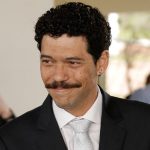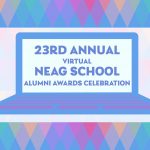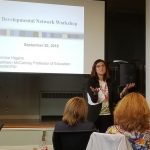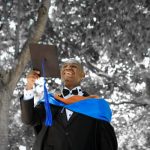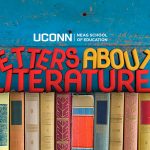Luis Ferreira will begin his Ph.D. studies in educational psychology this spring after facing unforeseen obstacles in obtaining a visa to study in the United States. Accepted to UConn’s Neag School of Education in February 2020, he has made tremendous sacrifices to pursue his doctorate, including moving away from his wife and family in Brazil.
Lauren Dougher ’19 MA, a doctoral student in cognition, instruction, and learning technology; Jordane Virgo ’19 (CANHR), a master’s student in school counseling; and Elizabeth Canavan, a master’s student in the Integrated Bachelor’s/Master’s Program, have been named the recipients of the Neag School of Education Alumni Board Scholarship for 2021.
No state school finance system remains adequate in perpetuity without checks and balances. Goals change as do other demands on local public schools. State school finance systems require constant evaluation and recalibration. Connecticut schoolchildren have waited far too long, especially those in the state’s low income black and Latinx communities.
The fascist riot at the U.S. Capitol is a fitting denouement of the Trump Presidency. His incitement of thousands of white supremacists, conspiracy theorists, and others caught in the thrall of his cult of personality demonstrated once and for all that there is nothing he won’t do to cling to power – and nothing some won’t do to keep him there.
The Neag School of Education and its Alumni Board are delighted to announce the 2021 Neag School Alumni Awards honorees. Six outstanding graduates will be formally recognized at the School’s 23rd annual Alumni Awards Celebration on Saturday, March 13, 2021.
Having always practiced what he preached as a professor, advisor, and coach, William “Bill” Servedio is someone who walks the walk. Perhaps more accurately, the Neag School Professor Emeritus runs the run; he appears to have spent most every day of his 78 years moving at full tilt. And in recently establishing a scholarship fund for Neag School sport management students in addition to taking part in virtual discussions with alumni from the program, he clearly has no intention of slowing down.
The following is an excerpt from Chapter 1 of The Strategy Playbook for Educational Leaders: Principles and Processes (Routledge, 2021), a new book co-authored by Neag School Associate Professor Jennie Weiner and her colleague Isobel Stevenson, director at the Connecticut Center for School Change.
The volume is a how-to resource designed for superintendents, central office staff, principals, and teacher leaders that looks to “provide leaders with a concrete framework for a strategic improvement pan, helping educators link the ‘principles’ to ‘processes’ of planning.”
Through a collaboration with Lehigh University, Neag School of Education associate professor Jennifer Freeman will develop an intervention to improve college and career readiness for students with emotional and behavioral disorders. This $500,000 grant is sponsored by the Institute of Education Sciences (IES). Freeman is a Co-PI with Lee Kern and Chris Liang at Lehigh University.
Each year, the Neag School co-sponsors a reading and writing contest known as Letters About Literature for Connecticut students in Grades 4-12. Students are asked to read a book, poem, or speech and write a letter to that author (living or dead) about how the text affected them personally. Prizes are awarded for top submissions.
When 2020 began, we had no clue as to the changes coming to our children’s education. Looking to the new year, the only thing that seems certain is that uncertainty in school opportunity, format, and structure will continue as the conditions around us adjust. School will carry on as unpredictable and unprecedented.
